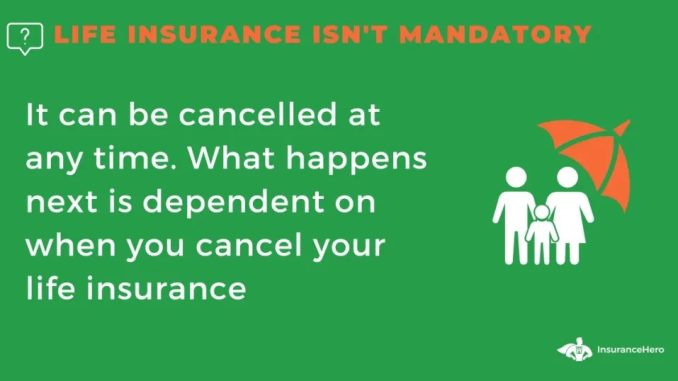
Canceling an insurance policy before its scheduled end date might seem like a straightforward decision, but it often involves more than simply stopping payments. Whether you’re switching providers, reducing expenses, or no longer needing coverage, it’s important to understand the consequences and processes involved in early cancellation. Many policyholders assume they can cancel at any time without issue, but depending on the type of insurance, timing, and the company’s policies, there can be financial and logistical implications that are worth considering.
One of the first things to understand is how refunds are handled. If you’ve paid for your policy in full for a term—say six months or a year—you might be eligible for a prorated refund for the unused portion. This means you’ll get back the amount corresponding to the remaining days of coverage, minus any applicable fees. Some insurers, however, apply what’s known as a “short-rate” cancellation penalty, especially if you cancel mid-term for reasons unrelated to a new policy with them. In those cases, your refund might be slightly less than what you expect because the company withholds a small percentage as a fee for early termination.
Timing plays a big role here. If you cancel a policy shortly after it starts, especially in the first month, some insurers may deduct setup or administrative fees before issuing a refund. Others may offer a full refund if cancellation occurs within a grace or “free look” period—usually within the first 10 to 30 days—common in life and health insurance policies. This period exists to give customers time to review the policy details and back out if they decide it’s not the right fit, often without penalty.
Beyond the financial side, early cancellation can affect your future coverage or even create unintended gaps. For example, if you cancel your auto insurance policy before securing a new one, you risk having a lapse in coverage. Even a short gap of a single day can affect your insurance history, potentially raising red flags for future insurers. A lapse in coverage can lead to higher premiums or, in extreme cases, denial of coverage. The same principle applies to health and homeowners insurance. Consistent coverage history is something insurance companies value, and interruptions can undermine your standing as a low-risk policyholder.
In cases where you’re canceling to switch to another provider—perhaps because you’ve found a lower premium or better service—it’s critical to coordinate the end date of your old policy with the start date of the new one. Ideally, there should be no overlap or break between policies. Many people choose to cancel their old policy the same day the new one begins, and they inform both companies to ensure records reflect continuous coverage. This helps avoid complications if you need to file a claim during that transition period.
Another consideration is how canceling a policy might affect bundled insurance deals. Many companies offer discounts if you carry multiple policies with them, such as combining auto and homeowners insurance. Canceling just one of these could inadvertently cause the others to become more expensive. It’s worth reviewing your bundled policy’s terms to understand whether removing one part will impact the pricing or benefits of the others.
If you’re canceling life or long-term policies, the situation becomes more nuanced. For example, if you’ve been paying into a whole life insurance policy that accumulates cash value, canceling early could mean losing money you’ve already invested, especially if the policy hasn’t been in force long enough to accumulate much value. In contrast, term life insurance policies don’t build cash value, so canceling them early usually doesn’t involve a financial penalty, but you’ll lose the protection they provide, which might leave loved ones exposed in the event of the unexpected.
Business owners should also tread carefully when canceling commercial insurance policies. General liability, property, and professional indemnity insurance are often required to comply with contracts or legal obligations. Canceling such coverage prematurely—without a replacement in place—could violate terms with landlords, clients, or governing bodies, leading to legal or financial repercussions. Before making any changes, it’s wise to review your business agreements and consult with your insurance agent or broker.
Sometimes, policyholders cancel because they mistakenly believe they no longer need coverage—perhaps because they’ve sold a car, closed a business, or moved out of a rental. But even in those cases, it’s important to officially notify your insurer and ensure the policy is terminated correctly. Simply stopping payment isn’t the same as formally canceling a policy, and doing so can result in the account being marked as “cancelled for nonpayment,” which might impact your credit or make it harder to secure affordable coverage in the future.
The good news is that most insurance providers have streamlined the cancellation process. A written request is usually required, though some may allow it over the phone or even online. Still, it’s worth following up to confirm cancellation has been processed, especially if a refund is expected. Keeping a paper trail is helpful, just in case there’s a dispute about the date or terms.
In the end, canceling a policy early isn’t inherently bad, but it should be done with intention and awareness. Take the time to weigh the potential costs, coordinate your timelines, and communicate clearly with your insurer. With a little planning, you can avoid unnecessary fees or coverage gaps and make sure your insurance strategy continues to support your financial goals rather than work against them.